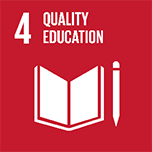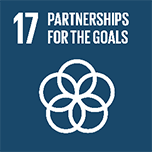Academics
AcademicsFaculty Information
HIGGINBOTHAM George

Associate Professor
Profile
He has taught English (and researched vocabulary) at universities in Hiroshima for many years.
Academic Field / Expertise
Applied linguistics ŌĆō vocabulary acquisition
Courses to Offer
Listening English
Writing English
Reading English
Current EnglishMessage
The Intensive English Program (IEP) will push your language skills in various ways so that after six months you will be confident to take all your Social System Design courses through English. In the reading classes, for example, you will read a lot of easy books (extensive reading) to build up your reading speed and then, in addition, read the kind of academic material (intensive reading) that you will be expected to cope with later in your studies’╝ÄAs well as improving reading skills, you will learn to write academically and present your ideas in a clear and logical way.
Summary of the Research Undertaken
I have been involved in a variety of projects exploring aspects of productive vocabulary: word association, lexical sophistication, and lexical diversity. As a language teacher, I am also interested in the practical application of this research, which has led to other projects in extensive reading and developing pedagogic wordlists.
Research Themes
- Productive vocabulary measures ŌĆō lexical sophistication; lexical diversity
- Extensive Reading
Details of the Research
Following a PhD in Vocabulary Acquisition (Swansea University) I undertook a series of studies to help refine the methodology used in word association research ŌĆō a method of measuring productive vocabulary. This then led to explorations of other ways to measure productive vocabulary, such as validating Laufer`s lexical frequency profile and (more recently) looking at fundamental aspects involved in measuring lexical diversity (such as how best to count words). This is part of a larger research project conducted in collaboration with Hiroshima University and Queen Mary University of London.
As a TEFL/EAP teacher, I have also run experiments to gauge the effect of Extensive Reading programs on vocabulary acquisition, attempting to answer questions such as: how much should EFL students read to make discernable gains in their knowledge of L2 vocabulary?
List of Papers
- Myint Maw, T. M, Clenton, J., & Higginbotham, G. (2022). Investigating whether a Flemma Count is a More Distinctive Measurement of Lexical Diversity. Assessing Writing, 53, 100640.
- Higginbotham, G. (2022) Vocabulary Gains in a Japanese University Extensive Reading Program. In P. Ferguson & R. Derrah (Eds.), Reflections and new perspectives. JALT.
- Suzuki-Parker, J. & Higginbotham G. (2019) Does Method of Administration Influence Word Association Test Responses? Vocabulary Education & Research Bulletin, 8/1, 11-16.
- Higginbotham, G. & Reid, J. (2019) The lexical sophistication of second language learnersŌĆÖ academic essays. Journal of English for Academic Purposes, 37, 127-140.
- Higginbotham, G., Munby, I. & Racine, J. (2015) A Japanese Word Association Database of English. Vocabulary Learning and Instruction 4/2, 1-20.
Books and Other Publications
- Higginbotham, G (2012) Chapters 3, 4 & 59. In Ronald J, Rinnert C, Fordyce K & Knight, T (Eds.) Pragtivities: Bringing Pragmatics to Second Language Classrooms. Tokyo.
- Higginbotham, G & Tennant, J. (2012) Another Talk in the Park. Hiroshima Kokusai Gakuin University.
- Higginbotham, G & Tennant, J. (2011) A Talk in the Park. Hiroshima Kokusai Gakuin University.
Professional Qualifications
- Ph.D. (Applied Linguistics)
- M.A. (TEFL)
- Post Graduate Certificate in Education
Key Words of the Research
vocabulary acquisition, applied linguistics, word association, lexical sophistication, lexical diversity, extensive reading



